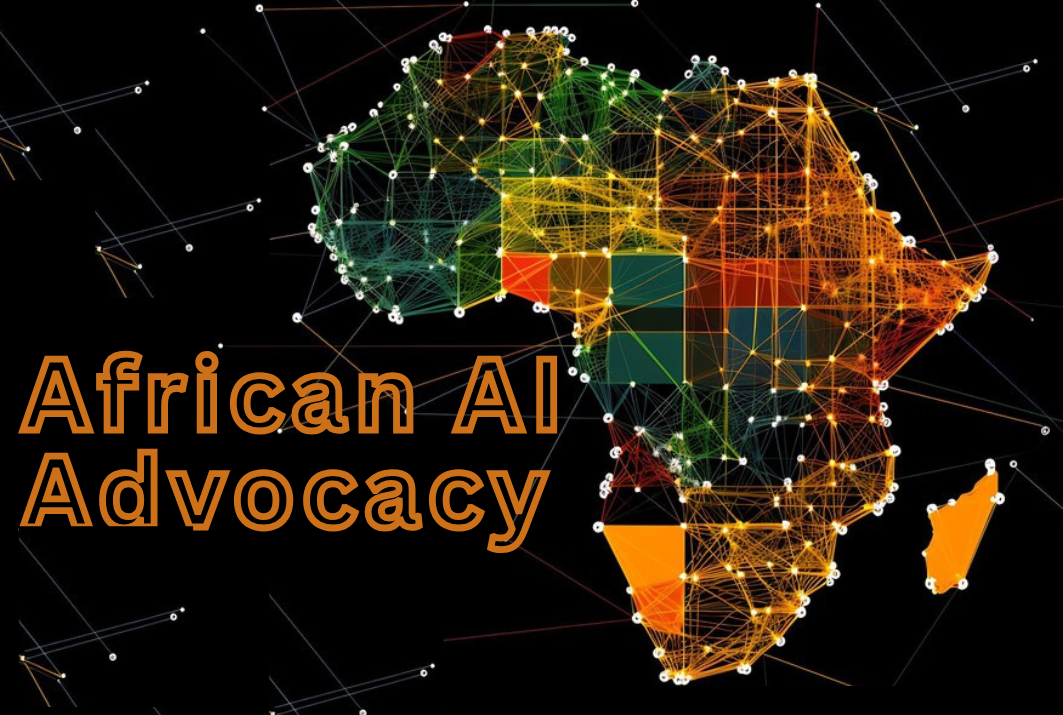Why AI Advocacy Could Save Africa: The Digital Revolution That Can't Wait
Blog post description.
Dr. Daniel Adaramola
9/5/20254 min read


Picture this: It's 2030. Your little cousin can't get a job because an AI system "trained" by underpaid Kenyan workers has decided she doesn't fit the algorithm's idea of employable. Meanwhile, somewhere in Silicon Valley, tech executives are celebrating another billion-dollar AI breakthrough—built partially on African data, African labor, and African dreams—while Africa watches from the sidelines.
Sound dystopian? It's happening right now.
But here's the plot twist: You have the power to change this story. And it all starts with something as simple as posting consistently about AI on social media.
The Great African AI Heist (And Why Nobody's Talking About It)
Let's start with some uncomfortable truths that make this whole situation feel like a badly written sci-fi movie—except it's painfully real.
The "$2 Per Hour Future"
Right now, in Kenya, young people are earning $1.50-2 per hour to train AI systems for American companies. They're sifting through gruesome content, labeling data, and essentially teaching machines how to think—in what activists are calling "AI sweatshops." These same AI systems will later make decisions about African lives, often with built-in biases against the very people who trained them.
It's like paying someone to build a house, then refusing to let them live in it. Except worse.
The Misinformation Tsunami
During Nigeria's 2023 elections, AI-generated deepfakes flooded social media faster than fact-checkers could blink. Videos of candidates supposedly endorsing terrorism. Photos that never existed. Voices saying words that were never spoken.
The result? A 300% increase in disinformation campaigns across Africa from 2022 to 2023. And here's the kicker: while tech platforms have armies of moderators protecting European and American users, African countries get what researchers describe as "thin coverage" with "limited local expertise."
Translation: We're on our own.
The Coming Job Apocalypse
Here's a number that should keep every African leader awake at night: 100 million. That's how many African youth the African Development Bank says won't find jobs by 2030 because of AI and automation. In Nigeria alone, 28 million jobs will require digital skills by 2030—skills that most people don't have and aren't being taught.
But hey, at least the robots will be efficient, right?
Plot Twist: Social Media Isn't Just for Memes Anymore
Now, before you close this tab and go watch TikTok videos (we don't judge), here's where things get interesting. That same social media you use to share photos of your lunch? It's actually one of the most powerful tools for social change that Africa has ever seen.
Don't believe us? Let's talk receipts.
When Hashtags Change History
#FeesMustFall in South Africa forced government policy changes through sheer digital pressure
#BringBackOurGirls turned a local Nigerian tragedy into global action
Cell phone alerts in Nigeria have saved over one million lives by warning people about Boko Haram attacks
Here's what these campaigns had in common: they started with ordinary people posting consistently about issues they cared about. Sound familiar?
The Ripple Effect Reality
Research shows that employee advocacy alone can grow brand reach by 561%. But we're not talking about brands here—we're talking about ideas, awareness, and literally the future of an entire continent.
When you post about AI issues affecting Africa, you're not just sharing information. You're:
Creating informed citizens who can demand better policies
Building awareness that protects people from exploitation
Amplifying African voices in a conversation that's usually dominated by Silicon Valley bros
Why Your Voice Is Africa's Secret Weapon
Here's something that might surprise you: Your voice carries more weight than you think.
The Local Credibility Factor
When Mark Zuckerberg talks about AI in Africa, people listen politely. When you—someone who actually lives here, breathes here, struggles with the same power outages and understands the real challenges—talk about AI, people believe you.
Research consistently shows that people trust recommendations from people they know 88% more than from distant corporations or foreign experts. Your Instagram story about AI bias might literally be more influential than a $100,000 Meta advertising campaign.
The Translation Effect
Complex AI concepts like "algorithmic bias" and "neural networks" sound like alien language to most people. But when you break them down into relatable examples—like explaining how AI hiring tools might discriminate against names like Adaora or Kwame—suddenly these aren't abstract tech problems. They're personal threats that demand attention.
The Cultural Bridge
You understand context that foreign tech companies consistently miss. You know why certain AI applications might be problematic in African societies. You can spot cultural blind spots that billion-dollar companies somehow overlook. That cultural intelligence makes your advocacy irreplaceable.
The "But I'm Just One Person" Myth (Spoiler: It's Nonsense)
Let's address the elephant in the room. Right now, you're probably thinking: "This all sounds great, but I'm just one person with 200 followers. How could my posts possibly matter?"
Fair question. Here's your answer:
The Domino Theory of Change
Social change doesn't happen because millions of people suddenly wake up enlightened. It happens because informed individuals create ripples that become waves. Every major social movement started with people who felt exactly like you do right now—uncertain but committed.
Consider this: Nigeria has over 100 million internet users. If just 1% of them become AI-literate through social media advocacy like yours, that's 1 million informed citizens who can demand better policies, recognize exploitation, and make smarter decisions about AI technologies.
The Compound Effect
Your posts don't just reach your followers—they reach your followers' followers. Social media algorithms love engagement, and AI content is currently trending. This means your AI advocacy posts might get more reach than your regular content.
Plus, every person you educate about AI becomes a potential advocate themselves. It's like teaching people to fish, except the fish is digital literacy and the ocean is the entire future of African technology.
The "Perfect Timing" Phenomenon
Here's something crucial: You're not too late, and you're not too early. You're perfectly on time.
The Policy Window
Right now, African governments are developing their AI strategies. Nigeria just released its National AI Strategy. Kenya has AI taskforces. South Africa is crafting AI governance frameworks. These policies will shape the next 20 years of African AI development.
But here's the thing: policies respond to public pressure. Politicians pay attention to what citizens care about. Your consistent posting about AI issues doesn't just educate your followers—it creates the social pressure that influences policy makers.
The Infrastructure Moment
Africa is in the middle of massive digital infrastructure development. 5G networks are rolling out. Internet penetration is increasing. Mobile money is exploding. This means your AI advocacy is reaching an audience that's more connected and digitally engaged than ever before.
You're literally riding the wave of Africa's digital transformation. The question is: will you help steer the wave, or just get swept along by it?
Ethics
Promoting responsible AI for Africa's future.
Impact
Unity
© 2025. All rights reserved.
